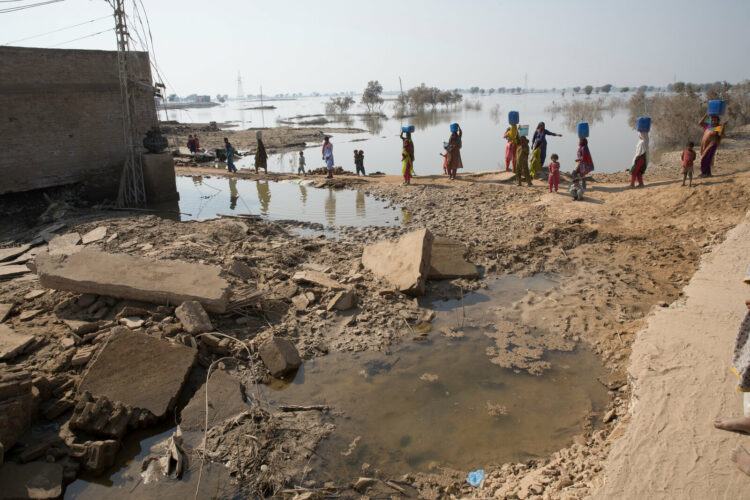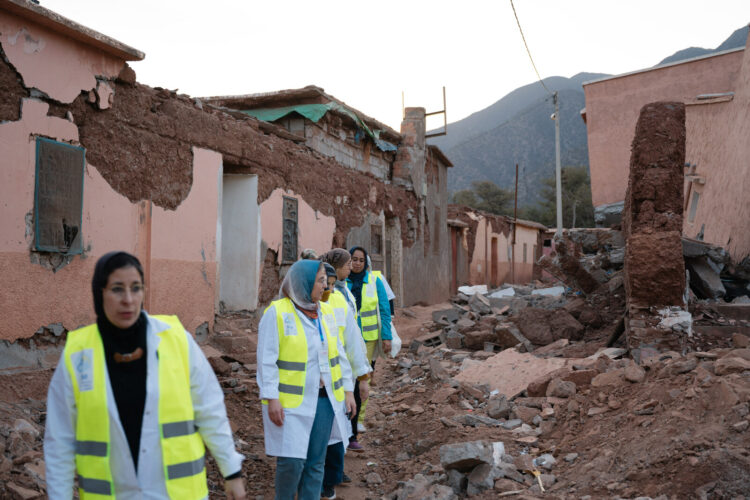Extreme Heat
With rising global temperatures, extreme heat is a growing risk to maternal and newborn health. Pregnant individuals are more vulnerable to heat-related illnesses, which can lead to dehydration, preterm labor, and complications for newborns. Midwives are not only first responders in extreme heat, but they can also be system builders. Their presence in every phase of crisis preparedness and response ensures care remains woman-centred, respectful, and resilient.

Key Risks and Challenges:
The Impact of Climate Change
This Position Statement outlines how climate change threatens maternal, newborn, and reproductive health—and calls midwives to lead in climate response, education, and advocacy to build resilient, sustainable health systems that protect women, families, and communities.
Interlocked: Midwives and the Climate Crisis
This report highlights midwives as frontline responders to climate-related health threats. Features a call for greater support of midwives, midwives’ inclusion in climate plans, and investment in midwifery to strengthen community health and build climate-resilient health systems.
The Role of Midwives in Humanitarian Crises
This Position Statement urges for the inclusion of midwives in all emergency planning and response. It highlights their essential role in delivering SRMNAH care, advocating for vulnerable groups, and ensuring quality, community-based support during crises.
Expert Resources
Climate change threatens health globally, by fueling disease, disasters, and system strain. Urgent action is vital to protect lives and health gains.
This position paper explores how climate change and environmental degradation threaten sexual and reproductive health and rights, and outlines legal strategies to ensure accountability and justice.
This course provides an introduction to the health challenges, as well as the opportunities, that can be associated to climate change.
Climate change harms sexual and reproductive health. This resource shares global evidence, data, and actions to protect sexual and reproductive health in a changing climate.
Extreme heat harms health and systems. This resource shares risks, response actions, and indicators to track and reduce heat-related impacts.
Extreme heat raises health risks in pregnancy. This CDC guide offers tips to stay safe, hydrated, and avoid heat-related complications.
This glossary is a resource for those working in both climate and health research to share related terminology and advance heat-health research.
“Promoting Maternal and Children’s Health: Women’s Health Nurses Fight Climate Change” highlights the role of sexual and reproductive healthcare providers in protecting pregnant women and children from climate-related risks like heat, pollution, and extreme weather.
“Protecting Children from Heat Stress” (UNICEF) outlines how rising heat harms pregnant women, infants, and youth, and shares clinical and policy actions to protect them.
From the Center for American Progress, “Rising Extreme Heat Compounds the U.S. Maternal Health Crisis” explores how heat worsens pregnancy risks—especially for Black and low-income women—and calls for urgent policy action to protect maternal health.
From the Journal of Midwifery and Women’s Health, “The Impact of Extreme Heat Exposure on Pregnant People and Newborns” reviews health risks and shares actions to reduce heat-related harm in pregnancy.





